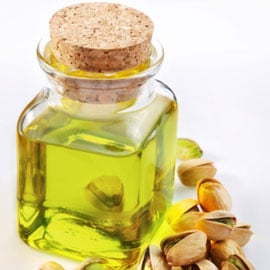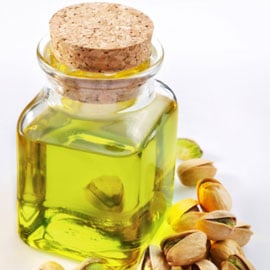 Though all of the world’s fats often get lumped together under the broad umbrella of “bad” foods, fat plays a crucial role in our bodies. Along with helping us absorb many vital nutrients, fat is an important component in structuring all the body’s cells, regulating blood pressure and maintaining a healthy heart. Fat is one of three macronutrients that provide our bodies with energy, along with protein and carbohydrates.
Though all of the world’s fats often get lumped together under the broad umbrella of “bad” foods, fat plays a crucial role in our bodies. Along with helping us absorb many vital nutrients, fat is an important component in structuring all the body’s cells, regulating blood pressure and maintaining a healthy heart. Fat is one of three macronutrients that provide our bodies with energy, along with protein and carbohydrates.
However, many fats deserve the dietary dark side label they receive, making it important to learn how to distinguish between the good and the bad. Saturated fat and trans fat, broadly categorized as “solid fats” because they solidify at room temperature, can play a role in developing obesity, cancer, type 2 diabetes and cardiovascular disease, making them disastrous for those who have undergone weight loss surgeries in Dallas. Solid fats typically include butter, pork and beef fat, shortening, and stick margarine–and they definitely do not do a body good.
Of course this begs the question: which fats are actually good for us? Experts say the best sources of heart-healthy dietary fat are plant oils, which come from a variety of different places. Here are a few to try out and why they’re better for you.
Sunflower Oil
Though you’ve probably eaten salted sunflower seeds as a snack before, you may not have known that they can also be made into cooking oil. Sunflower oil comes in three different varieties—linoleic, high oleic and NuSun. Each have different levels of the “good” monounsaturated and polyunsaturated while all being low in saturated fat. Linoleic oil is mostly made of polyunsaturated fats like omega-6 fatty acids, which help to promote hair health and the healing of wounds. High oleic oil is primary composed of a monounsaturated fat called omega-9 that contributes to memory, low blood pressure and cancer prevention. NuSun, a blend of these two, is best known for its capability to withstand high cooking temperatures, meaning that it doesn’t form trans fats when cooked or baked, unlike many oils.
Pistachio Oil
The oil from this humble green nut can provide you with all the same benefits. Formed from pressing the pistachio nut, pistachio oil contains no saturated fats and has a subtle sweetness that makes it perfect for cooking. Pistachio oil also contains high levels of plant compounds called phytosterols, which have been shown to reduce cancer risk and tumor growth in studies of animals. Phytosterols are also structurally comparable to cholesterol and can compete with the troublesome artery-clogger in the intestine to reduce the overall amount of cholesterol absorbed by your body.
Avocado Oil
Another great option for cooking because of the high temperature at which it starts to break down and lose nutrients—510 degrees—avocado oil is also rich in monounsaturated fats and has been shown to reduce levels of the “bad” LDL cholesterol and increase levels of “good” HDL cholesterol. Despite being about 90 percent fat, it’s all the good kind, helping your heart stay healthy and your cholesterol stay low as you try to lose weight.
Next time you reach for the butter or margarine as you cook, try grabbing one of these healthy alternatives instead. Though you should use them in moderation—as with all things—swapping in the good fats for the bad can make your whole weight loss journey less ugly.


